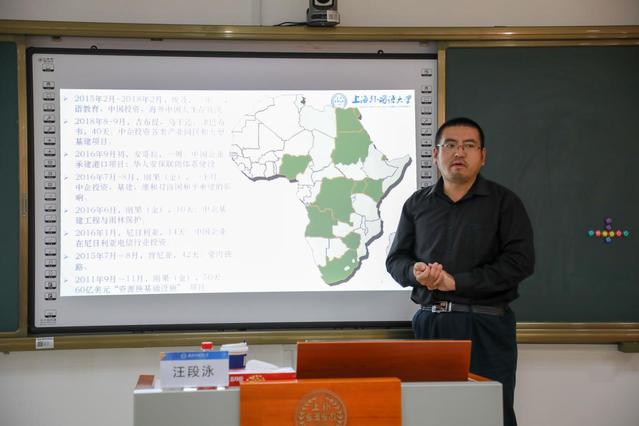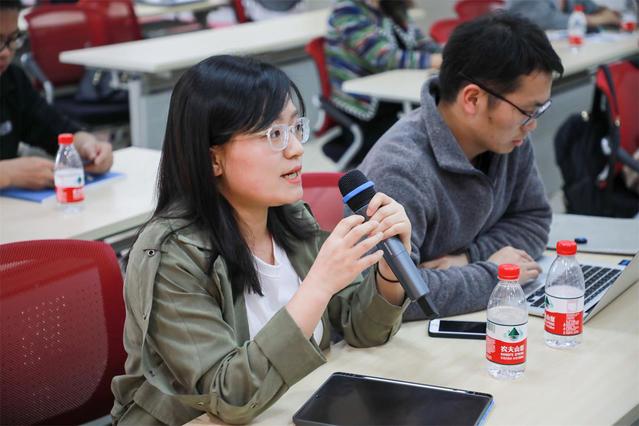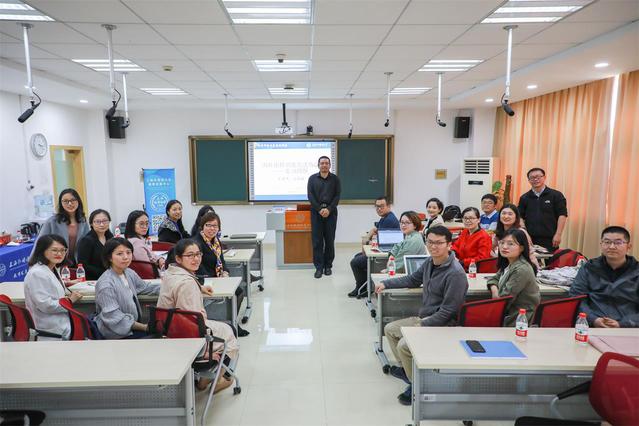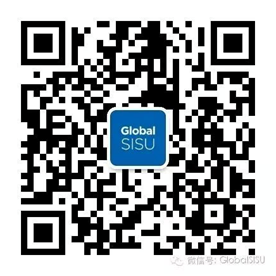 Lectures on Overseas Fieldwork
Lectures on Overseas Fieldwork Lectures on Overseas Fieldwork
Lectures on Overseas Fieldwork Lectures on Overseas Fieldwork
Lectures on Overseas FieldworkOn April 18, 2019, Wang Duanyong, associate researcher of the School of International Relations and Public Affairs and director of China Overseas Interests Research Center, delievered a lecture entitled “Overseas Fieldwork—Four Cases in Africa”. About 40 faculty members attended the lecture either on-site or online through SISU live broadcast. The lecture was the first of a series lectures on scientific research methods co-organized by the Faculty Development Center of the Office of Human Resources and the Office of Faculty Affairs.
Eight years of friendship in 200 slides
Since 2011, Wang frequently visted Africa, having been to Congo (Kinshasa), Kenya, Nigeria, Angola, Djibouti, etc. The first-hand experience has led to his accumulation of an abundance of materials for his academic research, allowing him to provide guidance for the protection of the Chinese government’s interests and Chinese enterprises’ investment in Africa and for risk assessment for Chinese citizens living in those countries. The nearly 200 slides Wang prepared for the lecture offered a glimpse into the invaluable work he has done over the years.
Indepth insight through four case studies
Wang started the lecture by first explaining the concept of “fieldwork”. He then explored the fundamental questions of conducting fieldwork research—what to study, how to study, how to interpret the data and how to deepen the study—by demonstrating his case studies in African countries, including Congo (Kinshasa), Kenya and Egypt. Wang emphasized that the fieldwork itself only accounted for a small portion of the entire research project, and that 90-95% of the research was done in fact from an office, which included extensive reading of existing literature. He also pointed out that the fundamental difference between fieldwork and regular field trips is that the objective of the former goes beyond data collection; instead, it was aimed at finding the hidden logic behind phenomena and the patterns in individual cases, through a series of activities, from preliminary preparation to hypothesis proposing, and from case finding to hypothesis confirmation.
Trust is of utmost priority
Wang highlighted a few pricinples in conducting fieldwork research: The researcher should be trustworthy, fully inform the research subjects, understand and sympathize with their difficulties, sufficiently evaluate the potential risks of the research to the subjects, respect the subjects and ask the subjects for permission before recording, etc. He also warned researchers against bias and invalid data collection, stressing on the importance of trust-building.
At the end of the lecture, Wang exchanged opinions with the attendees through a heated discussion on issues such as the academic transfer of fieldwork results and the resolution of misunderstandings with subjects. The Information Technology Center provided cross-campus live broadcasting service for the lecture.



